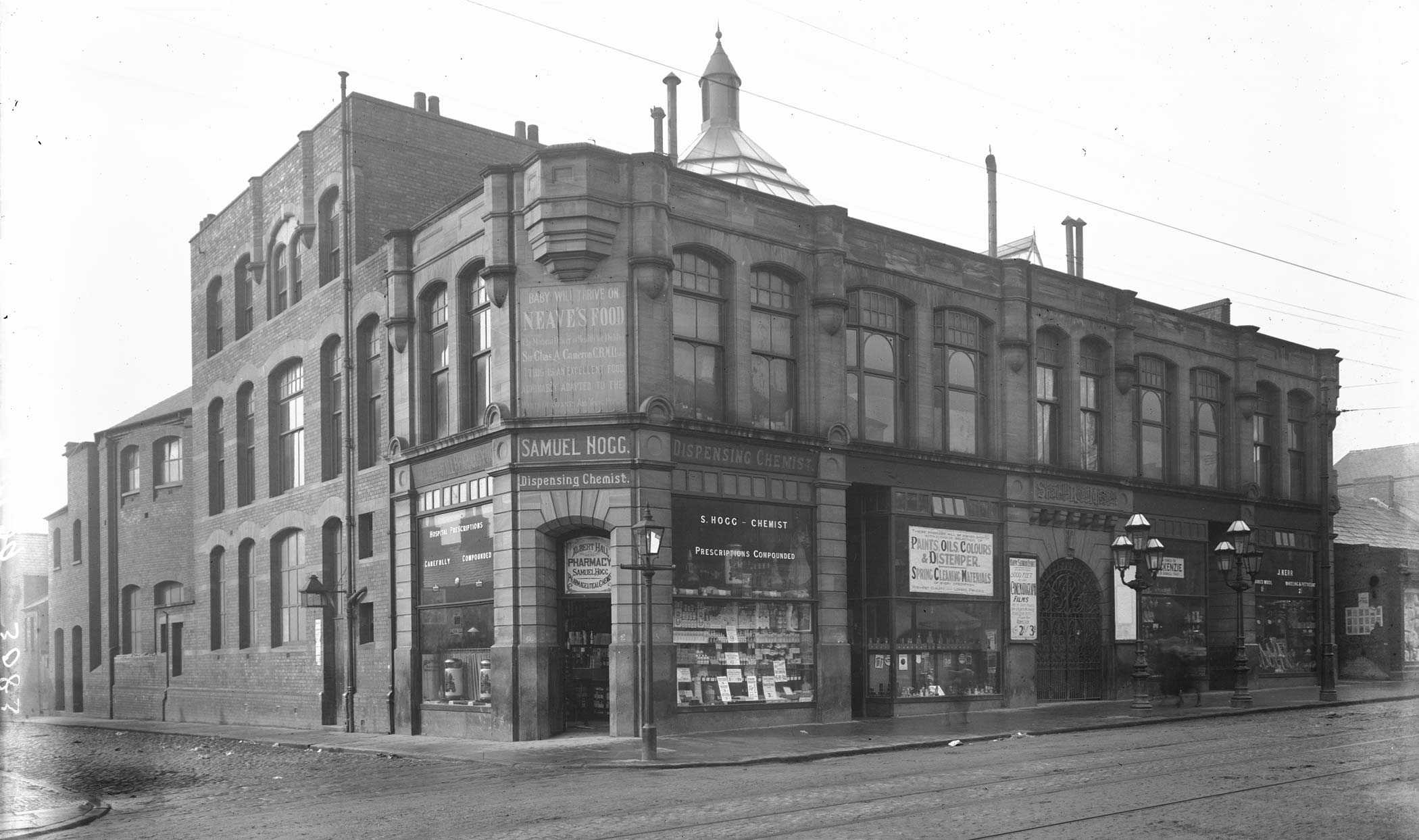12 February 1922: The Nicholson Revival
‘Divine Dynamite’: Popular Protestantism in Belfast
By Andrew R. Holmes
Against the backdrop of sectarian violence, economic depression and attempts to consolidate the new state of Northern Ireland, an evangelistic mission began in the Shankill Road area of west Belfast on 12 February 1922. At the end of the first week, The Witness, the Presbyterian newspaper of record, reported overcrowded venues and that ‘Large numbers’ had ‘entered definitely into a new relationship with God’. The lively meetings were a welcome challenge to ‘the dull, prosaic, ordinary services’ that were said to have deterred the working classes from attending church. The success of the mission led to rejoicing among ‘the people in Ulster who love the Lord’ and who were ‘looking with wistful longing to a similar visitation in the districts where they live’. The Witness concluded that the gospel was
still the Divine dynamite to change men and women, and to bring in the brighter and the better day which multitudes of hungry hearts are longing…It would be a terrible thing if our want of faith or our prayer should hinder the rising tide of God’s boundless grace from visiting the stricken land of Ireland.¹
The individual who had sparked this outbreak of religious fervour was William Patteson Nicholson. Nicholson was born near Bangor, Co. Down, in April 1876. After a spell as a hard-living merchant seaman and a railway construction worker in South Africa, his life was transformed by a personal religious conversion on 22 May 1899 and another spiritual experience soon afterwards. He undertook religious training in Glasgow and worked as an evangelist in Lanarkshire from July 1903 until September 1908. He then joined the American revivalists, J. Wilbur Chapman and Charles M. Alexander, and preached extensively in Australia and the United States. While in America, he was ordained in April 1914 as an evangelist by one of the many Presbyterian denominations, and during the Great War was employed by the Bible Institute of Los Angeles. He returned to his homeland from Glasgow in January 1921 and began a series of missions that swept Protestant Ulster until June 1923.
Nicholson defined himself as an evangelist whose sole responsibility was to call individuals to turn from their sin and to undergo the personal religious experiences that had transformed his own life. Nicholson worked with, not against, the Churches, though he was a constant critic of religious formalism or ‘churchianity’. He described his role as ‘quarry work’, blasting the rock of sin and indifference and allowing the Churches to shape the rough-hewn converts into useful church members. Preaching a demanding code of personal devotion and morality that offered certainty in uncertain times, Nicholson attracted thousands, not least because this so-called vulgar evangelist spoke in the idiom of Protestant Ulster. ‘There are many things which make Mr Nicholson’s presentation of the truth pleasing to an Ulster audience; but nothing more surely than that he speaks in the common tongue.’² Nicholson spoke exclusively to Protestants and was a unionist, yet, apart from his advocacy of a form of prohibition, he never discussed politics. He was, first and foremost, an evangelist:
Ye must be born again. There is no substitute for this…You may be a minister, or an elder, or a deacon, or a Sunday School teacher, or an evangelist, or a missionary; but ye must be born again. If you are rich, you must be born again; if you are poor, you must be born again; if you are learned, you must be born again; if you are a Presbyterian, or a Methodist, or an Episcopalian, you must be born again; if you are a Sinn Feiner or an Orangeman, you must be born again. There are not 50 ways to heaven; there is only one. You must be born again.³
Many lives were transformed under Nicholson’s influence, and he especially appealed to working-class men, a social group that the Protestant Churches struggled to engage. But he also divided opinion. For instance, the Belfast Telegraph published a letter from an inhabitant of the Shankill Road who claimed that ‘it is abundantly clear that that outspoken evangelist has succeeded in loosening quite a number of agents of the devil in Belfast and district’; on the same page, another correspondent declared, ‘Mr Nicholson is preaching a creed of hatred, of cursedness, and vulgarity, which, if allowed to continue, will do more harm than good.’ An editorial note informed readers that the paper had ‘received a very large number of letters dealing with this controversy, but the limitations on our space preclude us from continuing the correspondence’.⁴
In November 1922, Archibald Irwin, an evangelist connected with the Presbyterian Church, sought to answer the question, ‘Is there a revival in Ulster?’ He calculated that 12,409 individuals had undergone spiritual counselling, most of whom were adults, and that there had been ‘large and unprecedented’ numbers of new communicants in local churches. Nicholson had reenergised religious activism and piety, and this resurgence was perpetuated by Christian Workers’ Unions for the benefit of local churches. Irwin’s conclusion was circumspect, but hopeful:
That in the places where the missions have been held there are many signs of a general revival of religion, but that this revival is not of such a widespread character as to enable me to say that it has touched much of Ulster yet. However, the signs are distinctly hopeful that it will ultimately do so.⁵
At a farewell meeting in June 1923, Nicholson attributed his success to a steadfast commitment to gospel truth; he had made no compromise with either ‘unworldliness in the church or unbelief in the pulpit and pews’.⁶ To underline the broader significance of Nicholson’s campaign, a commemorative pamphlet was produced, From civil war to revival victory, in which leading Irish Protestants sang Nicholson’s praise.⁷
Nicholson returned to Northern Ireland in July 1924, this time conducting missions in provincial towns, and held his first mission in Dublin in November 1925. Yet by that stage, patience with Nicholson was wearing thin amongst many of the leaders of the Protestant Churches. He was now identified as a troublemaker, associated with unsuccessful efforts within the Presbyterian Church to stamp out so-called theological ‘modernism’. This impression was subsequently reinforced by Ian Paisley, who sought Nicholson’s approval.8 Though both shared a populist appeal and bitterly opposed theological liberalism, Nicholson did not advocate separation from Churches that tolerated error, and he ignored politics. Nicholson may have been sincerely wrong in his analysis and blind to the constraints of his culture, but his claim to be an evangelist committed to saving souls needs to be taken seriously. There has always been more to popular Protestant religiosity in Northern Ireland than simple opposition to ‘Rome Rule’.
Extracted from Ireland 1922 edited by Darragh Gannon and Fearghal McGarry and published by the Royal Irish Academy with support from the Department of Tourism, Culture, Arts, Gaeltacht, Sport and Media under the Decade of Centenaries 2012-2023 programme. Click here to view more articles in this series, or click the image below to visit the RIA website for more information.






















